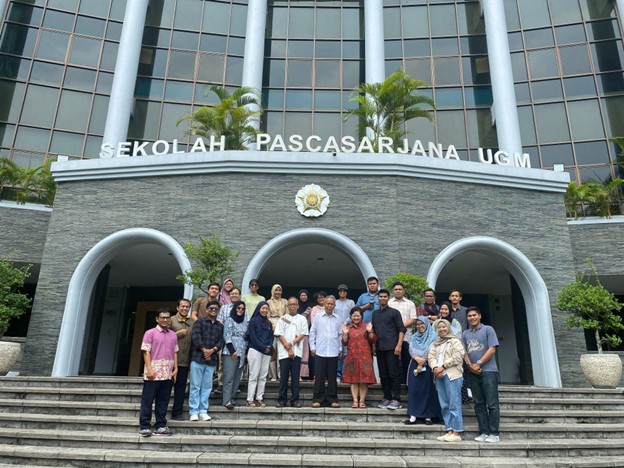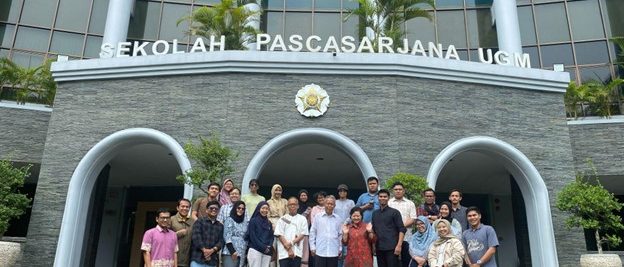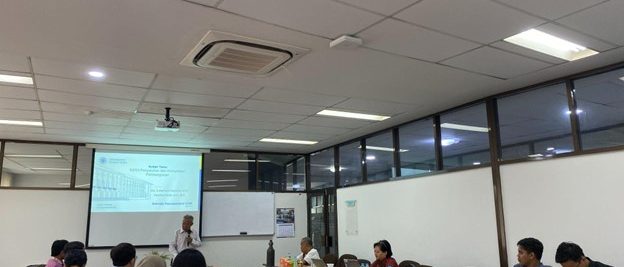
The Extension and Development Communication Master/ Doctoral Program at Graduate School, Universitas Gadjah Mada held a guest lecture titled “Development Communication” on Saturday (November 23rd ), held in the A Meeting Room on the 5th Floor.
This guest lecture featured two communication experts: Drs. Zulkarimien Nasution, M.Sc., a lecturer at the Department of Communication Studies, Universitas Indonesia (UI), and the author of several communication books, Hazairin Pohan, SH., MA., an international communication practitioner and former Ambassador to Poland.
Historically, Zulkarimien explained that development communication studies originally emerged as a new discourse in Indonesia and was generally still integrated within the field of communication studies. This has led to the rarity of universities offering a development communication program.
Literature on development communication is also seldom found in Indonesia, which prompted Zulkarimien to write a book titled “Development Communication: An Introduction to Theory and Its Applications”, first published in 1978. His book, which has since become a frequently referenced work, gradually helped the discourse on development communication evolve as providing more literature and research emerged.
Looking at the current development of the discourse on development communication, Zulkarimien emphasized that development communication remains relevant, especially considering the ongoing social gaps such as poverty and backwardness. He argued that development communication is not merely about technology transfer, but also an effort to empower communities. Development must be holistic, not just physical, but also mental and spiritual.
“Effective development communication can be a powerful tool to empower the poor, raise their awareness of their rights, and encourage their participation in the development process,” said Zulkarimien.
In line with Zulkarimien, Hazairin also stressed the importance of development communication in the diplomatic relations of a country. He highlighted the significance of effective diplomacy to achieve national goals. He sees Indonesia as a country with great potential to become a key player in determining the dynamics of the Asia-Pacific geopolitical region, possessing global influence. With all the potential it has, Indonesia needs to be more proactive in using its influence to create world peace and build a better global order.
Hazairin emphasized that as the country with the largest Muslim population, Indonesia has the potential to be a major force in the Islamic world with his long experience as a diplomat. Furthermore, Indonesia is the world’s largest archipelagic nation, with a rich and diverse cultural wisdom. Given all these potentials, Indonesia needs to be more proactive in leveraging its influence to create a better world peace, in line with the mandate of the 1945 Constitution. “With the new government in place, we hope Indonesia will become more active on the world stage and once again play a leading role in ASEAN and even globally,” Hazairin concluded.
In addition to presenting the perspectives of the speakers, the guest lecture also opened a space for discussion to exchange views and reflections on the urgency of development communication and its relation to Indonesia’s position in international relations in the future.
This event also aligns with the implementation of the SDGs, specifically Goal 1 on poverty, Goal 4 on quality education, and Goal 17 on partnerships to achieve the objectives.
Writer: Yeni Yuliati
Editor: Arni Wistriatun


